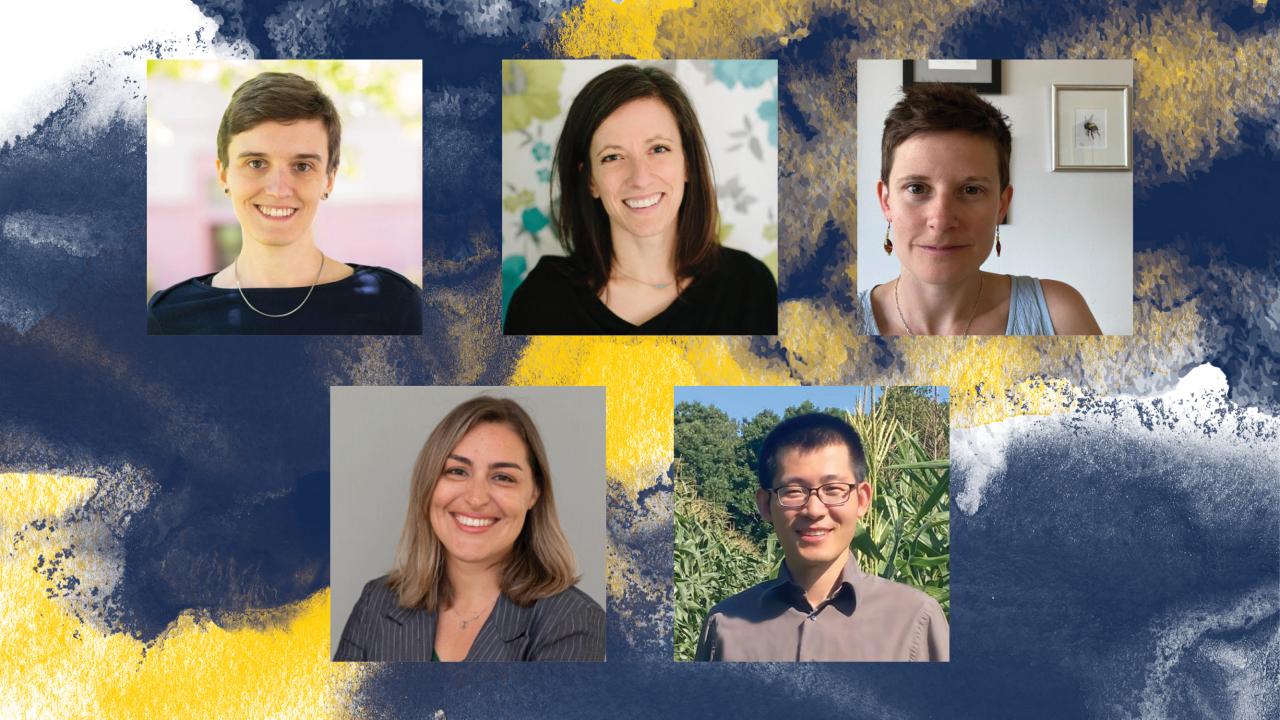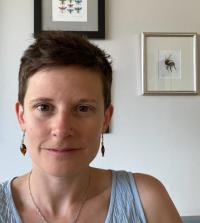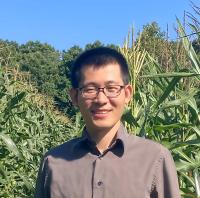
CBS Welcomes 5 New Faculty in the 2023-24 Year
Interdisciplinary cohort brings diverse perspectives, expertise to campus
The college was pleased to welcome five new faculty members to its ranks during the 2023-24 academic year. Joining the Departments of Plant Biology, Molecular and Cellular Biology, Neurobiology, Physiology and Behavior, and the Center for Neuroscience, each faculty adds breadth and depth to the college’s research and teaching portfolio.
“As our world advances in both knowledge and need, our faculty are poised to continue leading the way toward new discoveries, innovations and in the training and education of the next generation of scientists,” said Mark Winey, dean of the College of Biological Sciences. “I am so pleased to welcome this new group of faculty to our college, and to our campus. I know they will make a lasting difference in the lives of our students, and in our collective understanding of life on Earth.”
The new faculty began at varying times throughout the year, and will begin teaching in the fall of 2025. With expertise ranging from the behavior of frogs and wild bees, to the regeneration of eyes in aquatic snails and the development of maize, they will make significant contributions to the excellence and scientific breadth of the college.

Alice Accorsi
Assistant Professor
Molecular and Cellular Biology
Alice Accorsi's research focuses on the cellular and molecular mechanisms involved in the development and regeneration of sensory organs, specifically camera-type eyes. Her lab utilizes the golden apple snail, Pomacea canaliculata, which uniquely offers a model for studying the full regeneration of adult eyes after amputation. This system allows for comprehensive exploration of this process at molecular, cellular, and genetic levels. The lab employs advanced techniques such as RNA-sequencing, light microscopy, and CRISPR/Cas9 mutagenesis to understand adult regeneration and stem cell biology. Key goals include identifying proliferating cells, elucidating the gene regulatory networks (GRNs) governing eye regeneration, and distinguishing regeneration-specific GRN components from those shared with developmental programs. This research not only advances knowledge in regeneration and evolutionary conservation of the visual system but also holds potential for translational applications in biomedical and tissue engineering fields, ultimately aiming to improve human health.

Eva Fischer
Assistant Professor
Neurobiology, Physiology and Behavior
Eva Fischer's research aims to understand how brains and behavior exhibit both flexibility and robustness, leading to similarities and diversity in animal behavior. Her lab uses integrative approaches to study these phenomena across various biological levels (from gene networks to behavior) and timescales (immediate to evolutionary). Specifically, the lab leverages the natural behavioral diversity of frogs to explore the mechanisms of behavior and its evolution, with a focus on parental care. Committed to diversity, Fischer's team fosters an inclusive environment in research and education, recognizing that diversity in study systems and human perspectives is essential for addressing fundamental questions about the biological bases of behavior.

Felicity Muth
Assistant Professor; CAMPOS Scholar
Neurobiology, Physiology and Behavior
Felicity Muth conducts research on the cognitive ecology of animal behavior, focusing on how animals learn and make decisions in their natural environments. Her work primarily involves pollinators, such as bees, to understand the mechanisms and ecological consequences of their learning and memory. By studying how these insects acquire and use information to forage, navigate, and interact with their environment, Muth aims to uncover broader principles of animal cognition and behavior. Her research combines field observations, controlled experiments, and computational modeling to explore how cognitive processes influence ecological interactions and evolutionary dynamics. Additionally, Muth is committed to promoting diversity and inclusion in science, striving to create an equitable research environment that supports the growth and success of all individuals. Her work not only advances fundamental knowledge of animal cognition but also has implications for conservation and the management of pollinator populations.

Martine Therrien
Assistant Professor; CAMPOS Scholar
Molecular and Cellular Biology; Center for Neuroscience
Martine Therrien's research explores the role of microglia, the brain's immune cells, in neurodegenerative diseases such as Alzheimer’s and Amyotrophic Lateral Sclerosis (ALS). Her work uses human stem cell models and single-cell omics to identify, track, and manipulate microglia states, which have distinct transcriptomic and proteomic signatures in disease conditions. These states are crucial for understanding how microglia dysfunction contributes to disease progression and impacts patient symptoms. By investigating these mechanisms, Therrien aims to reveal essential roles of microglia in neurodegeneration and identify potential therapeutic targets. Her research combines advanced molecular biology techniques with a focus on inclusivity and mentorship, fostering a diverse and collaborative environment. Through her innovative approach, she seeks to advance knowledge of brain function and develop novel strategies for treating neurological disorders.

Xiaosa (Jack) Xu
Assistant Professor
Plant Biology
Xiaosa (Jack) Xu’s research investigates plant developmental genetics and evolution, using models such as Arabidopsis, maize, and wheat. His lab employs advanced single-cell genomics and spatial transcriptomics to identify key genes and regulatory elements involved in plant development and evolutionary processes. By functionally characterizing these regulators through CRISPR genome editing and various molecular, cellular, and biochemical techniques, Xu aims to understand how these elements control plant development and evolution. This research not only enhances our understanding of plant biology but also contributes to developing strategies for crop improvement, addressing challenges in agriculture and food security.
